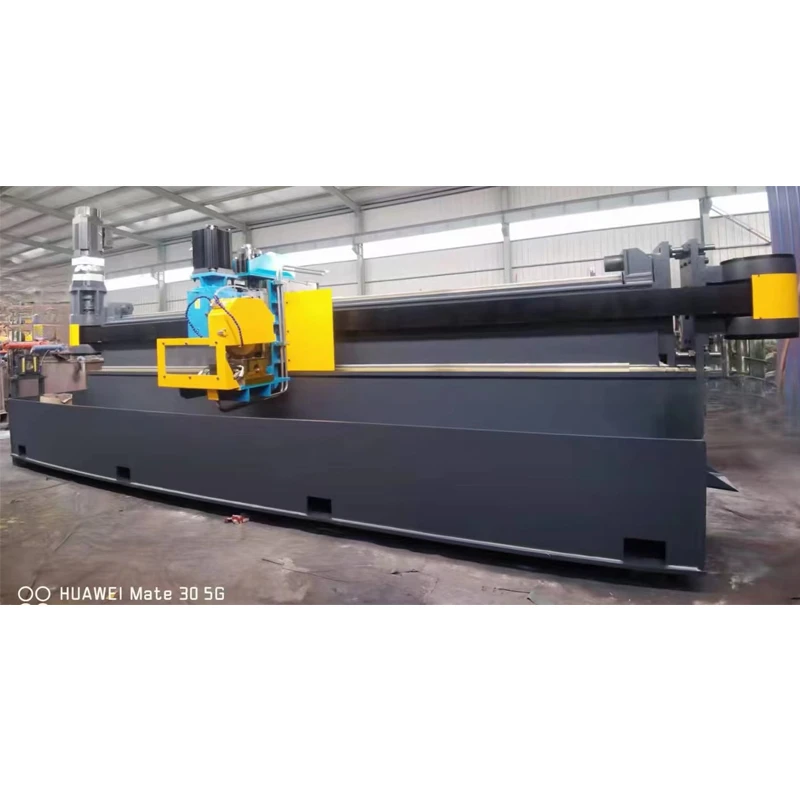High-Quality Rolling Mills Available for Purchase at Competitive Prices
The Importance of Rolling Mills in Metalworking and Options for Sale
In the modern industrial landscape, rolling mills play a crucial role in the metalworking industry. These machines are designed to process metal sheets and bars by reducing their thickness, thereby enhancing their mechanical properties for various applications. For metal fabricators and manufacturers, investing in a quality rolling mill can be the difference between efficient production and costly delays. With an increasing demand for high-quality metal products, the market for rolling mills is expanding, offering numerous options for businesses looking to purchase one.
Understanding Rolling Mills
At its core, a rolling mill consists of a pair of heavy horizontal rolls. The metal is fed between the rolls, which apply pressure that reduces its thickness and shapes it into a desired profile. Rolling mills are mainly used in the production of flat-rolled products like sheets and plates but can also be tailored for producing bar and wire stock. The types of rolling mills include hot rolling and cold rolling mills, each serving specific purposes based on the temperature and mechanical properties of the metal being processed.
Hot rolling mills operate at elevated temperatures, allowing metals to be shaped easily and reducing the energy required for deformation. Cold rolling mills, on the other hand, are used to refine the thickness and surface finish of metals at room temperature, delivering a smooth and fine finish, which is essential for certain applications.
Why Invest in a Rolling Mill?
Investing in a rolling mill can have numerous benefits for businesses in the metalworking sector. Firstly, it increases production efficiency. By having a rolling mill in-house, manufacturers can streamline their processes, reduce lead times, and respond quickly to customer orders. This flexibility often translates to increased profitability as the ability to produce customized metal products on demand becomes a competitive advantage.
Secondly, having a rolling mill allows manufacturers greater control over their production quality. With in-house capabilities, firms can continually monitor the properties of the rolled metal, ensuring it meets specific standards and requirements. This is particularly important in industries such as automotive and aerospace, where precision and quality are paramount.
Finding the Right Rolling Mill for Sale
rolling mill for sale

When considering a rolling mill for sale, it is essential to evaluate your specific needs and production requirements. Here are some key factors to consider
1. Type of Material Different rolling mills are designed for specific types of metals. Consider whether you will be working primarily with steel, aluminum, or other metals.
2. Size and Capacity Assess the typical size and thickness of the materials you plan to process. Rolling mills come in various capacities, so it’s crucial to select a machine capable of handling your production demands.
3. New vs. Used Depending on your budget, the choice between new or used equipment can significantly impact your decision. While new rolling mills offer the latest technology and warranties, used mills can provide substantial savings if they have been well-maintained.
4. Brand Reputation Investing in equipment from reputable manufacturers can ensure you receive a high-quality product backed by support and service.
5. Additional Features Consider mills with advanced features such as digital controls for improved accuracy, energy efficiency options, and ease of maintenance.
Conclusion
As the demand for high-quality metals continues to rise, so does the necessity for effective rolling mills in the production process. For companies venturing into the world of metal fabrication, procuring the right rolling mill can lead to improved operational efficiencies, enhanced product quality, and better responsiveness to market needs. When searching for a rolling mill for sale, it is vital to carefully evaluate your business requirements, considering factors such as material type, capacity, and whether to invest in new or used machinery. By doing so, businesses can make informed decisions that will not only meet their immediate production needs but also support their long-term growth and success in a competitive market.
-
High Frequency Straight Seam Welded Pipe Production Line-BzZhou Xinghua Machinery Equipment Manufacturing Co., LTD.|Precision Welding, High EfficiencyNewsJul.30,2025
-
High Frequency Straight Seam Welded Pipe Production Line|BzZhou Xinghua|Precision Welding&EfficiencyNewsJul.30,2025
-
High Frequency Straight Seam Welded Pipe Production Line - BzZhou Xinghua|Precision Engineering&EfficiencyNewsJul.30,2025
-
High-Frequency Straight Seam Welded Pipe Production Line-BzZhou Xinghua Machinery Equipment Manufacturing Co., LTD.NewsJul.30,2025
-
High-Frequency Straight Seam Welded Pipe Production Line-BzZhou Xinghua Machinery Equipment Manufacturing Co., LTD.|Precision Manufacturing, High EfficiencyNewsJul.30,2025
-
High Frequency Straight Seam Welded Pipe Production Line-BzZhou Xinghua Machinery Equipment Manufacturing Co., LTD.|Precision Steel Pipe Manufacturing&Industrial EfficiencyNewsJul.29,2025


